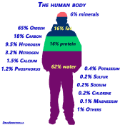A Growing Problem in Many Communities
Drug addiction in Canada is a growing concern. Since 2016, an estimated 27,000 people have died from drug use.
In the summer of 2022, the Canadian government decriminalized the possession of small amounts of cocaine, heroin, and other narcotics. The Canadian government continues to do everything to fight against opioids, besides increasing treatment options, such as detox, rehab, and aftercare support.
Decriminalization means that the person will not be charged for possession. The drugs are not legal, which means that, ideally, they should be encouraged or sent to drug rehab, but this does not always happen.

The Drugs Canadians are Using
Since the COVID-19 pandemic, there has been an increase in the unregulated drug supply in the country. Urinalysis reports have shown that cocaine, crack cocaine, methamphetamine, and amphetamine accounted for most of the stimulant use in the country.
Fentanyl was detected most often in British Columbia and Thunder Bay and was last detected in Manitoba and Nova Scotia. In addition, there was an increase in unregulated benzodiazepine use across the country.

After a Treatment Program
Drug Addiction in Canada
Statistics
- Alcohol is the most common drug used by Canadians, and its use has significantly increased. The risky use of alcohol is still most prevalent among young adults in the country, aged 18 to 24.
- The use of prescription stimulants in the country has increased since 2015. The prescription stimulant use prevalence is highest among youth aged 15 to 19. In addition, roughly 60% of postsecondary students aged 17 to 25 who reported using prescription stimulants reported problematic use.
- Opioid pain medication is estimated to be used by 11.8% of Canadians, and roughly 3% report using it for non-medical purposes. Between January 2016 and December 2019, there were 15,393 opioid-related deaths in Canada. The rates of emergency department visits for opioid poisoning have doubled for younger adults aged 24 to 44.
Series on Intervention

Canada's Opioid Crisis
Illegal drugs are a significant problem in Canada, especially opioids. Since 2016, there have been more than 9,000 apparent opioid-related deaths. In 2017, roughly 11 lives were lost each day because of opioid overdose.
- Approximately 94% of opioid overdose deaths happen by accident.
- Young adults aged 15 to 24 are the fastest-growing age group needing hospital care from an opioid overdose.
- Street drugs across the country have been tainted with opioids, such as fentanyl.
- There are higher rates of opioid prescribing in the country.
Detox, drug rehab, and aftercare support are the best approaches to treating opioid addiction and dependency.
Youth and Young Adults are at the Highest Risk
The rates of illicit drug use in Canada remain the highest among youth aged 15 to 24. Canadian youth remain the top users of cannabis in the country.
- Canada is only one of six countries with youth cannabis use rates over 20%.
- Youth in Canada are initiating cannabis use at a younger age.
- The prevalence rates of cannabis are highest among Indigenous street-involved youth.
- The rates of illicit drug use were five times higher among youth aged 15 to 19 and young adults aged 20 to 24.
- The rates of prescription drug abuse were highest among youth aged 15 to 19 and young adults aged 20 to 24.
Youth and young adults need drug rehabilitation to overcome these problems. Without adequate treatment and community aftercare support, these drug problems continue into adult life and become difficult to treat.

Five Key Reasons
for Relapse
Early Prevention and Rehabilitation Necessary Steps
Prevention and education remain the best options to prevent drug addiction in Canada. In addition, it remains the most cost-effective approach.
Prevention programs and campaigns reduce the demand on an already strained system while reducing the cost of substance use within society.
However, it does not trump the need for treatment and rehabilitation. In Canada, the provinces and territories are responsible for providing public drug rehabilitation. Yet, access to public drug rehab is limited, and there are often long wait times.
Stigma and Societal Costs
Significant stigma is still attached to drug and alcohol addiction, especially injection drug use. Stigma mainly affects people affected by poverty and homelessness. In addition, discrimination is associated with illicit substance use, which restricts individuals’ access to certain types of healthcare.
The social costs are also significant. Substance use has costly health, community, and economic impacts, placing an economic burden on the public. The combination of crime and addiction in Canada costs taxpayers billions each year.
The perceptions of drug use in the country are changing. Reports have shown there are variations in societal perceptions surrounding drug use. Over the last ten years, there have been increases in perceptions of the seriousness of medical and illicit drug use.
However, knowing the risks does not stop people from using drugs. These are the problems that must be addressed through prevention, education, rehabilitation, and community aftercare support.
Find out more about us.

Carole Pelland
Substance Abuse
Digital Marketing Administrator
& Author
Reviewed by Susan. Chubbs Drug and Alcohol Treatment Specialist


